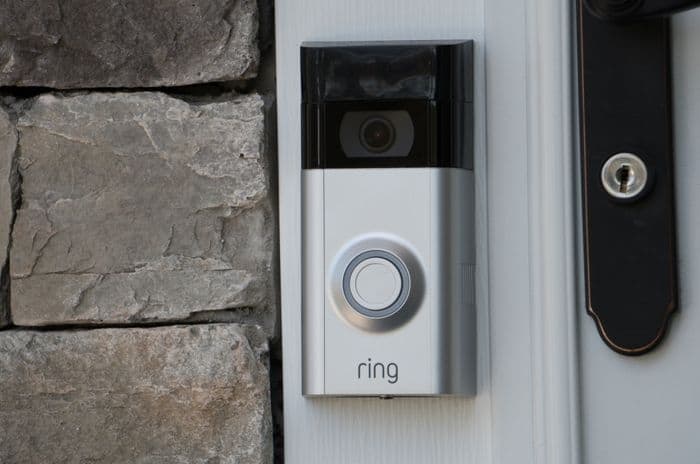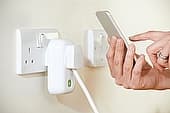Home > News > Amazon's Ring doorbells keep logs of presses and interactions
Amazon's Ring doorbells keep logs of presses and interactions
Amazon's smart Ring doorbells record every motion, press and app action - and the exact time each event happened.
Amazon keeps a detailed log of each motion captured by their Ring doorbells, it was revealed this week.
A data request from the BBC showed that Amazon stores records of each time the bell is pressed, each time it detects movement, and each interaction from the Ring app.

What is Ring?
Ring is a range of smart video doorbells from Amazon. The gadgets allow people to see, hear and speak to whoever's at the door, and be alerted when the Ring device detects a movement. It also integrates with various Amazon home security devices - and, of course, Alexa.
What's being stored?
The BBC's data subject access request (DSAR) got data for around four months, from a Ring 2 Video Doorbell - plus two weeks' worth from a Ring Indoor Cam.
The results revealed that Amazon stored 1,939 'camera events', which included:
- Remote interactions - the owner getting video/audio from the doorbell, or speaking to the visitor through the gadget
- Doorbell presses
- Motions detected by the Ring sensors
There was also a bigger database, which logged all interactions with the Ring apps - everything from opening the app, to the 'type' of screen tap, to when the user zooms in on footage.
The type of mobile phone and the network were also logged.
Why does Amazon want the data?
Personalised data helps build a picture of the user. This kind of data is valuable: the more a company knows about someone, the better equipped they are to sell to that person.
Although Amazon's retail site is separate from the part of the company that makes Ring, the possibility of the two arms working together hasn't been ruled out. The BBC asked about possible collaboration - for example, Amazon using Ring data to help schedule packages - and Amazon declined to respond.
Companies also, in many cases, sell that data to other businesses - third parties, as the terms and conditions say.
Even anonymous data is worth a lot. When a company has data from a huge number of people, they can identify trends for market research and training purposes - and even use it to help develop AI mechanisms.
Are smart home gadgets dangerous?
Companies gathering so much data is a privacy concern to many - but there's further cause for caution in the case of Ring and other smart home devices.
Last year, for example, hackers in the US took over Ring cameras in users' homes, shouting through speakers and setting off alarms.
Although they didn't get into Ring's databases, the incidents prompted Ring to introduce obligatory two-factor authentication - sending users a unique text or email code each time they log in.
Ring has also provoked broader privacy concerns due to third-party trackers in the apps. Although the company recently changed security settings to allow users to opt out of sharing their information with third parties, the controversy continues.
Can I stop smart home gadgets from gathering my data?
There's not a lot that can be done to persuade Amazon, Google and their peers to give up that hugely lucrative habit. It's up to each person whether the loss of privacy is worth the gain in convenience.
Some compromises can be made when building a smart home - Amazon's Echo Flex, for example, extends Echo while keeping functionality limited in some rooms. Those who want the latest tech with less intrusion might stick with things like smart lights - although, of course, the apps they work with can still collect usage data.
How do I stay safe?
The UK Government has now weighed in on smart home security, proposing regulations for manufacturers of online Internet of Things (IoT) products.
Smart home devices can be useful for comfort and security. Their appeal is broadened by providers like EE allowing users to spread the cost over a contract.
The risk of hackers gaining access to data is hugely reduced by precautions like two-factor authentication and practising good online security.
Another good resource to check is Mozilla's smart home ratings, which focus on security and data sharing.
Get insider tips and the latest offers in our newsletter

We are independent of all of the products and services we compare.

We order our comparison tables by price or feature and never by referral revenue.

We donate at least 5% of our profits to charity, and we have a climate positive workforce.
Technology Guides

Technology
Echo Show 15: Hands-on review
Technology
Which is the best air purifier?
Technology
Kobo Elipsa reviewLatest News

Technology
Right to repair rules come into force

Comments